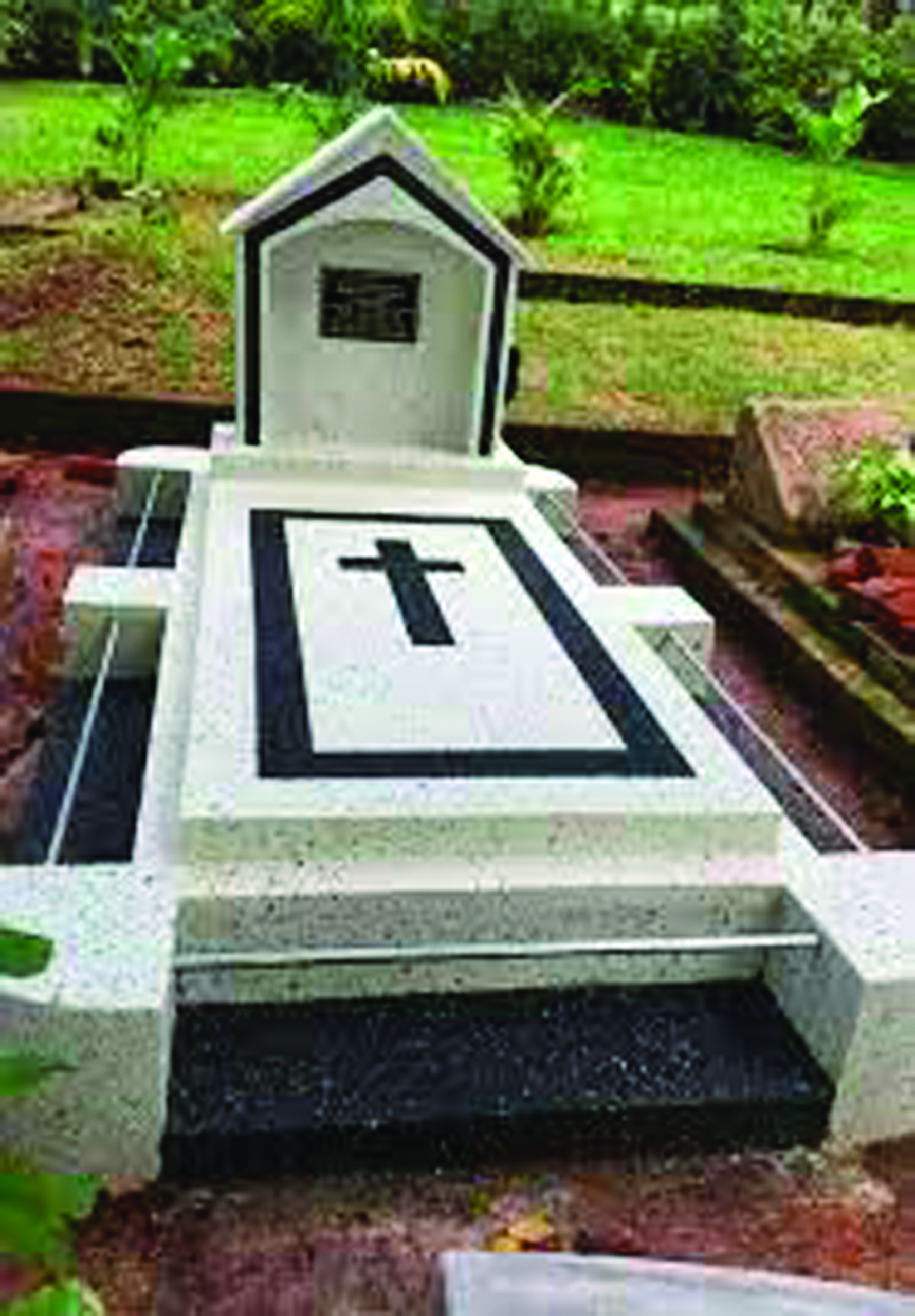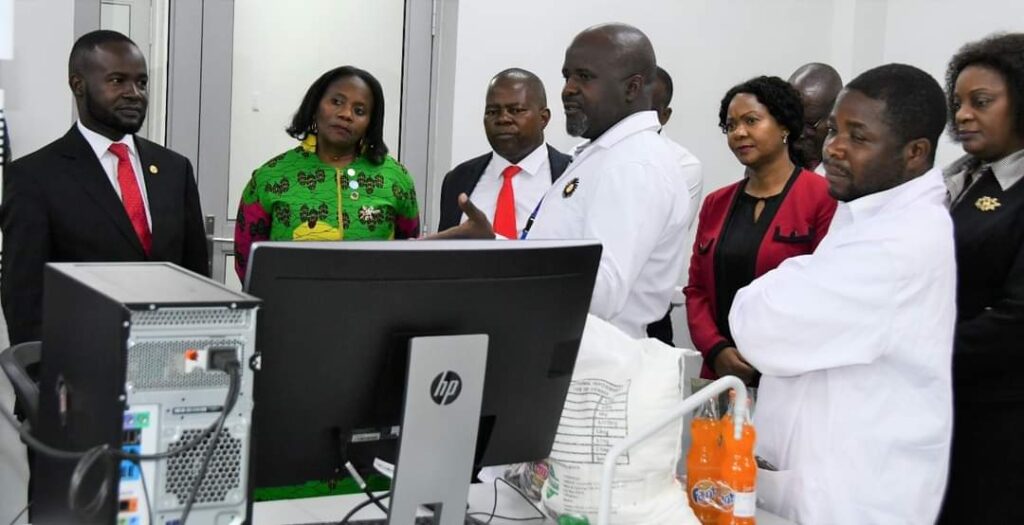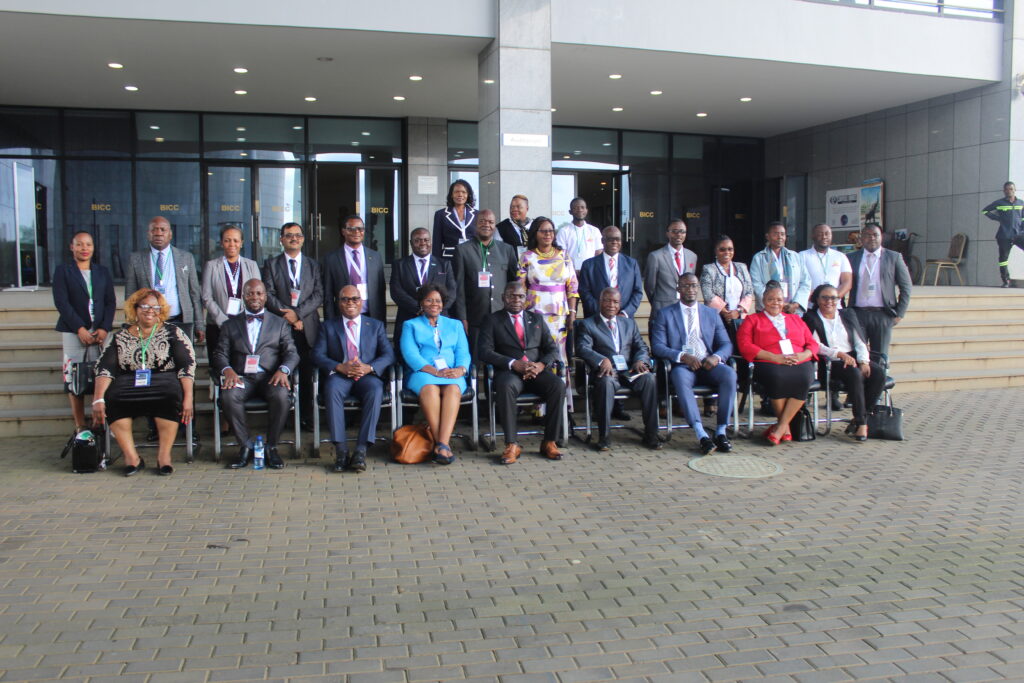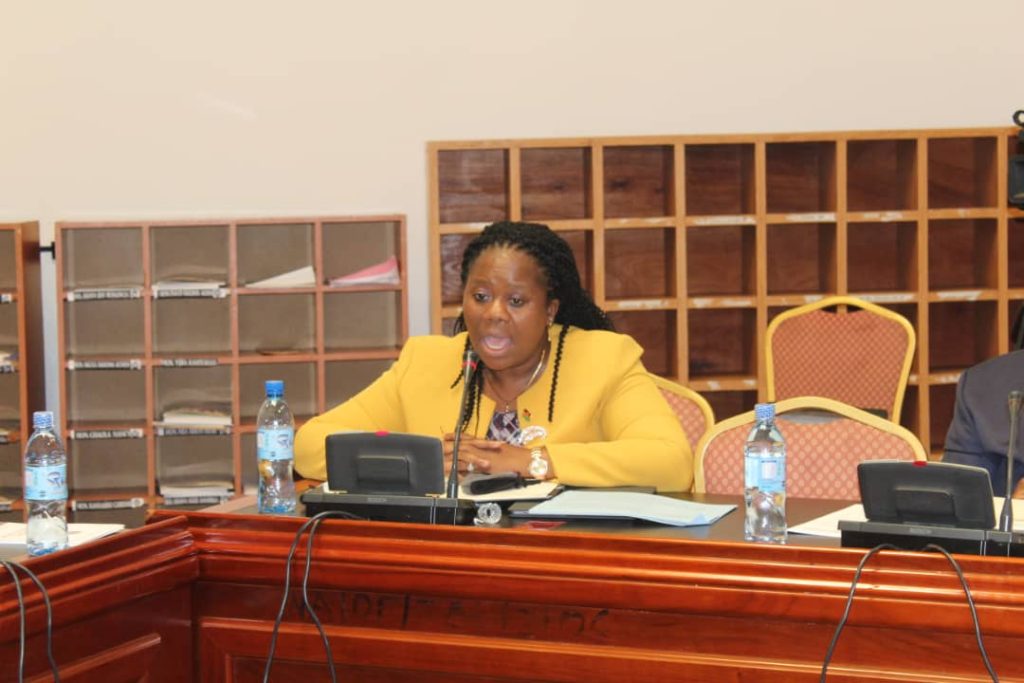
Mining & Trade News
Malawi Online News
Top Stories

Trade
Terrazzo business thrives in Lilongwe M1 roadsidesOctober 13, 2025 / Christopher Jimu Chegutu
When you are travelling on the M 1 road in Lilongwe’s Area 36 and Biwi Triangle, what will catch your eye is the number of terrazzo bags being sold along this highway.
These are bags of terrazzo brought to the capital city from as far as Neno, Balaka, Mangochi and Ntcheu by small scale miners. This terrazzo is made of white cement coloured aggregates including granite chips and other recycled materials and water.
It is used in construction projects for dwelling houses, offices, and tombstones.
MD for CSM Terrazzo and Tiling Granite Company Ganizani Kapito said in an interview that he started his business five years ago and normally sources terrazo from Njeleza in Mangochi.
“This business has changed my life. Terrazzo is hot business no wonder you can see that from Lilongwe Girls Secondary School all the way to Bunda Road Block there are people selling it. I sell it in 40 and 20-Kilogram bags and the pricing is very competitive,” said Kapito.
The order price for the 20 kg bag is K3,500 while the selling price is K7,000 while the order price for the 40 kg bag is K7,000 and the selling price is pegged at K10,000.
“I manage to pay school fees for all my children, pay rentals and bills and buy food from proceeds from this business. The only challenge I face is the rainy season because business tends to slow down,” he said.
There are over 30 entrepreneurs doing this kind of business in the Lilongwe M1 area.
Edson Goliati of Tapuma Terrazzo and Granite situated in Biwi Triangle explained that there are two types of terrazzo, black and white, though the prices are the same.
James Kapito who sells the Terrazzo near St Jones Msamba Catholic Church said he personally travels to Njeleza or Neno to order several bags of the commodity for sale.
The minerals sector in Malawi is still at exploration stage and dominated by artisanal and small scale mining of construction minerals, coal and gemstones.

Trade
Malawi Trade Minister bemoans proliferation of substandard importsNovember 08, 2023 / Chisomo Phiri
Malawi’s Minister of Trade and Industry Sosten Gwengwe has expressed concern over the proliferation of substandard products that are being smuggled into the country.
The Minister expressed the concern when he visited Malawi Bureau of Standards (MBS) head office in Blantyre.
“Something has to be done to deal with dumping of substandard products in Malawi. Smuggling is dragging us behind in terms of having quality products in the country,” said Gwengwe.
The Minister said his coming to MBS was to have a high level engagement with Board Members and Management on how MBS can play a leading role in face-lifting the economy through robust boarder and internal quality monitoring controls.
He said his Ministry is prepared to support MBS and other relevant institutions and agencies in the National Quality Infrastructure (NQI) in combating smuggling and proliferation of counterfeit products on the market as they pose a serious setback to economic growth of the country.
In his remarks, MBS Director General Dr.Bernard Thole said MBS is implementing some programs and projects to ensure standardization and quality assurance services and enforce Metrology Act in the country to ensure consumer protection.
“MBS has a mandate to promote metrology, standardization and quality assurance of commodities and of the manufacture, production, processing or treatment thereof; and further to provide for matters incidental to, or connected with standardization,” Thole said.

Trade
Construction work for Lirangwe- Chingale- Machinga road project to resumeSeptember 20, 2023 / Chrissy Fereciah Nkumba
The Roads Authority says preparations are underway to resume construction works for Lirangwe-Chingale-Machinga road which stalled in March 2021 when the contract with Portuguese contractor Mota – Engil was terminated.
Public Relations Officer for Roads Authority Portia Kajanga told Mining & Trade Review that RA repackaged the remaining works for the project as “Upgrading of Lirangwe – Chipini Road to bitumen standards” which was put to tender in July this year.
“The works will involve earthworks, culvert installation, construction of lined side drains, bridges, road over rail-bridge and bitumen surfacing,” Kajanga said
Kajanga said the benefits of road project will include prevention of exposure to dust which is associated with lung infections, ease of transportation to public amenities all weather, creation of jobs for communities, creation and improvement of small scale businesses, and infrastructure improvement in the area.
Kajanga did not reveal the reasons for the termination of the contract with Mota- Engil but media reports indicated that there were hiccups for the contractor to complete the project in time.
Prior to 2014, the road had a gravel surface in poor condition and the then President Joyce Banda laid a foundation stone for the work to commence.
However, work progressed very slowly. Banda’s successor Arthur Peter Mutharika also laid a stone marking the commencement of work in 2018.
As of February 2018, only 11 percent of the work had been completed, though the initial completion date was September 2019.
The 62 km road will connect the M1 at Lirangwe in Blantyre District and the M3, a few kilometres from Machinga District Council.
The other roads in pipeline in Malawi include the upgrading the Nsanje-Marka Road which isapproximately 25.9 km earth/gravel road to bitumen standards. The road is part of a regional route connecting Malawi with the Port of Beira in Mozambique and beyond.
The Malawi Roads Authority also intends to rehabilitate/reconstruct and widen the Kaphatenga– Dwangwa Road in Nkhotakota District in the central Region of Malawi. The work will also involve replacing single lane and temporary bridges with permanent two lane bridges for the section spanning from Nkhotakota to Bua Bridge. The road will be widened to a new cross-section.
The Malawi Government will also embark on a project to construct the Mzimba – Eswazini –Mzarangwe road.This is a section on the main road designated M022.The road is approximately 45km and will be constructed to bitumen standard. This is one of the key roads in the Northern Region of Malawi as a trade route.
There is also the construction of Chiringa-Muloza Road project which is an important trade route.The road begins at Chiringa, then continues southwards along the eastern foot of the Mulanje Massif closely following the existing T415 road alignment, crossing several rivers and streams and finally joining the M2 road.
The other project in pipeline is the upgrading of Rumphi-Nyika-Chitipa road. Traversing a length of 272 km, the project will upgrade two roads designated as Main roads (M24 road from Rumphi District – Nyika and M09 from Nyika- Chitipa. Currently the road is of earth standard and will be upgraded to bitumen Class 1.

Trade
Exim Bank Conclave to benefit Malawian private sector – MITCJune 29, 2023 / Wahard Betha
The Malawi Investment and Trade Centre (MITC) says it is optimistic that the upcoming 17th CII Exim Bank conclave on India-Africa growth partnership exhibition scheduled to take place from July 19 to 20 July, 2022 in New Delhi, India, will benefit private sector companies in Malawi.
MITC says in a press statement that the 17th CII Exim Bank Conclave meeting aims at exchanging knowledge and expertise in business regarding export, trade, and investment.
Public Relations Manager for MITC Deliby Chimbalu has described the meeting as an important platform that can benefit private sector companies in Malawi.
Chimbalu has invited all private sector players to take part in the conclave as one way of selling their products and services to the outside world.
She said: “The Conclave on India and Africa is a great opportunity for our private sector companies to meet and forge business partnerships with other businesses in India and even those that will be attending from other countries.”
“You know over the years, the Conclave has increased the level of economic engagement between India and Africa and we envisage that this year’s event will create new opportunities for setting new partnerships between India and Africa hence our call to Malawi private sector to be part of this event.”
As a national investment and trade promotion and facilitation agency, MITC identifies, develops and packages investment opportunities in Malawi; provides a professional service to all clientele; brands and markets Malawi as an investment destination; retains and expands trade and export activities and links opportunities to the developmental needs of the Malawi community.
This year’s meeting is focusing on agriculture and food processing, power and energy, infrastructure development, and financial partnerships and will feature an exhibition of products and services from India and African companies.
The CII- EXIM Bank Conclave on India-Africa Project Partnership was launched in the year 2005 with the support of the Ministry of External Affairs and the Ministry of Commerce & Industry of the Government of India.
Over the last sixteen editions, the Conclave has played a pivotal role in encouraging Indian companies to establish and grow their footprints in Africa.
The level of economic engagement between India and Africa has grown multi-dimensional and to reflect the changing contours of this dynamic relationship, the Conclave is being rechristened as “CII EXIM Bank Conclave on India Africa Growth Partnership” expanding the earlier focus on “Project Partnership”.
The upcoming edition will focus on project exports, trade, investments, exchange of knowledge and expertise creating shared value for business and industry at large between India and Africa
Being the continental economic partnership, the conclave has not only set the ground for many new cross-border partnerships to take roots, but also conducted a critical evaluation of the existing collaborative arrangements on the basis of which a new roadmap for future Africa partnerships would be designed.

Trade
Malawi Minister lobbies for certification of export productsApril 06, 2023 / Wahard Betha
The Malawi Government has urged exporters in the country to have their products certified by the state of the art laboratory being operated by Malawi Bureau of Standard (MBS) to ensure that the local products are consumable as well as compete on the international market.
Minister of Trade and Industry Simplex Chithyola made the remarks at the Malawi Exporters Awards conference in Lilongwe which was organized by Malawi Investment and Trade Centre (MITC) under the theme ‘Rewarding Excellence, Unlocking Global Exports.’
Chithyola said the laboratory has the potential of driving local products away from the embarrassment of being sent back when exported to outside market due to being substandard.
He said: “It is a major concern when Malawian products are declared not good for consumption when exported.”
“But now we have state of the art laboratory which is being managed by MBS which makes sure that we improve in terms of standard and quality.”
“As Ministry, we would like to urge those exporting products that they should certify with MBS to avoid embarrassment.”
The Malawi Exporters Awards aims at influencing local producers to be exporting local products in order to attract foreign exchange into the country.
Responding on the exposure of the local products to possible foreign buyers, Chithyola disclosed that the Ministry is committed to support the local Small and Medium Enterprises (SMEs) in finding international markets.
Chithyola said: “We are now operationalizing the National Export Strategy II which creates conducive environment for exports.”
“At the same we are also coming up with policies and legal and regulatory frameworks which favours those doing businesses.”
“To ensure access to information, we have set up a market intelligence strategy where by people are able to get markets through the Ministry or by just visiting our website.”
In his presentation, MITC Chief Executive Officer Paul Kwengwere said his institution organized the awards to address a number of business constraints being faced in the sector.
Kwengwere said the programme will help in raising awareness of export potential of services and goods that SMEs produces in the country.
He said: “We have organized this event to share export opportunities with the business community and also build export readiness through counselling and motivational sessions.”
“At the same time we are trying to increase awareness of government policies and strategies to grow Malawi’s export base.”
In his remarks, Executive Director for Ecobank Limited Weluzani Chingota said the bank will continue providing support towards alleviating some of the challenges that SMEs are facing in the sector.
Chingota acknowledged that SMEs in the country are facing challenges including: lack of financial support, lack of markets, lack of reliable water and power supply and; higher dependency on rain fed products.
He said Ecobank has introduced continental single market trade hub to help countries endure the African Continental Free Trade Agreement (ACFTA).
He said: “The African continent’s single market, established through the African Continental Free Trade Agreement (AfCFTA), has created exciting opportunities to foster intra-African trade and investment.”
“At Ecobank, we have launched the Ecobank Single Market Trade Hub to help SMEs grow their business under the AfCFTA.”
In 2021, the Malawi Government launched National Export Strategy II (NES II) which will run from 2021 to 2026 with the target of increasing exports of ‘Made in Malawi’ products and services by 22% in the next five years through export promotion, export development, export facilitation and organization efficiency and effectiveness.
The focus is on high value strategic products in the four export sectors, namely agriculture, manufacturing, services, and mining.
The new strategy has prioritized specific markets for the region and internationally with a focus on capitalizing CFTA and emerging markets in which Malawi has potential to export competitively.

Trade
Malawi exporter awards to increase local exportsMarch 01, 2023 / Wahard Betha
The newly launched Malawi Exporters Awards 2023 by the Ministry of Trade and Industry, in conjunction with the Malawi Investment and Trade Centre (MITC) is set to increase local exports by encouraging local companies to be exporting competitive products.
Former Minister of Trade and Industry Mark Katsonga Phiri launched the Malawi Exporters Awards on January 12, 2023 in Lilongwe.
This year, the Malawi Exporters Awards 2023, has been scheduled to take place from March 29th to 30th, 2023, at the Bingu International Convention Centre in Lilongwe.
Commenting in a press statement, CEO for MITC Paul Kwengwere says the awards have been organized as a platform to sensitize the locals on the importance of increasing exports of Malawian made products, encouraging a culture of creating exports, as well as awarding best exporters in the country.
He said the winner’s selection process will comprise a detailed, well-planned criteria and the awards will include Best Non-traditional Exporter award, Best Female Exporter Award, Best Youth Exporter Award, Best Services Exporter Award as well as Best Financial Institution Award.
Kwengwere said: “Extending across industries and including both rural and urban presentation, the awards will serve as a celebration of the contribution exports have made to Malawi’s Gross Domestic Product (GDP) and forex earnings.”
“The event will comprise export awareness exhibitions which will provide a platform for B2B meetings and one on one B2G with Trade Support Institutions and Gala Dinner which will culminate to Exporter Awards Ceremony on the closing day.”
“MITC is therefore, calling upon local exporters and financial institutions, who are interested to be considered for the categories, including the Malawi Exporters of the Year Award, to visit our event website to fill out an application form and submit their information.”
MITC has just found a potential export market for rice in Gambia which was revealed during a virtual business meeting held between Malawian private sector and buyers from Gambia.
Speaking during the meeting, Finance and Economic Affairs Specialist and owner of Niro Company Ltd in Gambia, Sulayman Cham said they are ready to start importing rice from Malawi.
“Gambia requires 96,000 metric tons of rice per year based on its relatively low population. So we are ready to start importing from Malawi and we are mostly interested in buying 100% broken rice of any variety from Malawi because that is what is on demand,” Said Cham.
Commenting on the development, Kwengwere encouraged local exporters to explore this market opportunity in Gambia.
He said: “This is a great opportunity for those that are into rice production. As a trade facilitation agency we are more than ready to facilitate those that might be interested in exploring this opportunity in Gambia.”
“We are also told that apart from rice, Gambia is also interested in importing other commodities like Irish potatoes and onions from Malawi.”
“So we are still engaging the Ministry of Trade in Gambia on how best we can explore such export opportunities.”
Malawi’s trade engagement with Gambia is in line with the spirit of the African Continental Free Trade Area (AfCTA) which encourages economic integration to promote trade and investment in the region.

Trade
The Role of a Geologist in infrastructure Development in the Construction industryJanuary 06, 2023 / Admin
Geologists belong to a technical expertise that deal with rocks. This technical expertise is branched into many aspects, among others, environment, geotechnical engineering/engineering geology, seismology, volcanology, exploration geology, geoinformatics, geo-statistics, structural geology, petroleum geology just to mention but a few. All these aspects of geology may be applied in the construction/ building industry using geology as the fundamental basis for such tasks. Infrastructures like road construction, bridges, foundations to buildings, railways, tunnels, housing settlements, dams, mine construction require the services and input of a geologist.
- Environmental geology is in one way also associated with Geohazard mapping among others to help in decision making and planning of housing units and settlements.
- Engineering geology involves application of geotechnics/ geotechnical aspects by identifying geological factors that could affect construction projects.
- Seismologists are concerned with earthquake and seismic studies as in assisting in planning for settlements. They also make decisions based on attenuations of seismicity of an area where they may deduce the return period hence careful planning. Similarly they also work in areas where seismicity is the order like inducing them in oil exploration/petroleum to locate the position of wells, during design and construction of dams,
- In road, tunnel, railway construction, engineering geologists are very important in analyzing the geotechnical aspects. For example in a tunnel construction a geologist is engaged to determine the type of rock where the railway might pass that will provide a good roof in avoidance of collapsing in and such knowledge may be accompanied by blasting technology to ascertain the blasting pattern that does not cause damage to the existing rocks and gives minimal negative or no impact at all
In mineral exploration geologists are required to do geological mapping, reconnaissance surveys, geophysical surveys, drilling, geological logging, sampling, resource estimation, geotechnical evaluations, geostatistics and in mine geology they are important in ore delineation by controlling the grade, sample analysis, geological mapping as in face mapping, stockpile analysis, ore blending, mine to mill reconciliation etc.
1. Aspects of geology in Infrastructure Development/Construction
In construction Industry engineering geologist form the basis of foundation in determining say the type of rock to source quarry stone which may be used for building houses or roads. They may aid in planning for the choice of a site for construction of buildings to determine structures like faults. This type of geology analyses the geological and geomorphological techniques and knowledge at the pretext of aiding and facilitating infrastructure planning, geological mapping etc. The foundation of houses or buildings may be on top of these structures and may be underlain by underground drainage or an active spring. Engineering geologists here analyse ground materials to assess the risk factors and offer advice to the best procedures for the development and sustainability of such. They undertake field investigations by collecting and analyzing data where decisions can be made from. The importance of a geologist in infrastructure developments go beyond hydrogeology, petrology and geochemistry, rock mechanics, geohazard analysis just to mention only but a few..
2. Importance of Geology in Civil Engineering
Geology plays significant and crucial role in civil engineering discipline since it studies the structure of the earth.
- Geology tries to identify areas that are prone to structural failures arising from geological hazards like landslides, mudflows, debris flows, earthquakes etc.
- Knowledge of hydrogeology helps to understand groundwater where this is connected to water supply etc. A geologists assesses groundwater conditions that can affect the stability of a structure like dam construction. In this case, hydrogeological maps provide distribution of groundwater and the associated depth through groundwater modelling, mapping etc.
- Geological survey is also important because it tries to reduce the risk of incurring a huge cost to the project. In this regard a geologist may be required to make risk assessments of future construction sites.
- Foundation problems of buildings, bridges, roads, dams, excavations occur in direct relationships with the areas in which they are built
- The knowledge about the properties and nature of rocks and rock mass is very important to determine slope and cut stability of say road and tunnel construction.
- Geological maps help in planning by civil engineers. It provides information about structural depositions, faults, folds, joints, bedding planes that have to be carefully analyzed to increase the slope/structure stability.
- If civil engineers know the rock properties they can consider a specific rock type for a particular purpose or use such as aggregate, foundations, building stones, roofing materials since they are able to know the structure of the earth through geology.
3. Challenges faced by geologists in Malawi
- Geologist scope is not recognized and appreciated.
- Lack of knowledge and exposure to work that requires the services of a geologist and constructions where contractors do not feel the need for engagement
- Lack of understanding of technical language, digital data and interpretations of geology by the people.
- Limited job market locally.
- Working in various harsh environments.

Trade
Malawi Government seeks investor to construct multi-storey market in LilongweOctober 18, 2022 / Prisca Promise Mashushu
The Malawi Government is seeking an investor to construct and manage a multi-storey market in the Capital City Lilongwe under a Public Private Partnership arrangement.
Malawi’s Public Private Partnership Commission (PPPC) says in a statement that the preferred investor will be selected in accordance with Quality and Cost Based Selection method (QCBS) procedures and in terms of the Full Technical Proposal (FTP) and Financial Proposal format as described in the request for proposals in accordance with the PPP policy and PPP Act as well as the Procurement Policy, Procedures and Guidelines of the PPPC which can be found on its website: www.pppc.mw.
It says interested eligible investors may obtain further information and inspect the Request for Proposal Documents at its offices.
A complete set of Request for Proposal documents in English language may be purchased by interested eligible Investors upon the submission of a written application and payment of a non-refundable fee of MWK10-thousand
The deadline for submission of proposals is November 9, 2022.
Lilongwe is the largest city in Malawi and is divided into four sectors namely; Old Town, Capital Hill, Kanengo and Lumbadzi.
The design clusters residential, employment and service areas around each centre, in order to optimise travel distances and avoid congestion. The city is further divided into 68 areas.
The Council has four markets in the Central Business District (CBD) namely Central, Tsoka, Lizulu and Area 3 Markets.
The city has experienced rapid urbanisation such that the two main markets are overcrowded with traders.
The congestion of traders in the market has led some of the traders plying their business in the streets hence a need for a new infrastructure to accommodate more traders.
The Lilongwe City Council ranks the planned construction of the market dubbed the Wenela Multi-Storey Market and planned construction of an International Bus Terminal in the city as its flagship projects.

Trade
Malawi signing trade treaties to expand export baseMay 07, 2022 / Wahard Betha
The Malawi Government says it is entering into trade relations with a number of countries in the world’s key trade blocks in order to expand the country’s export market base.
Responding to questions by the Parliamentary Committee on Trade on the status of Malawi’s trade activities, Christina Chitima, the Principal Secretary for the Trade Ministry told the committee that the country has signed various Memorandums of Understanding (MOUs) with South Africa, Sudan, India and China to export locally produced farm items.
Chitima said the arrangement will ensure that extra local farm produce that cannot be consumed is earmarked for the export market to boost the country’s economy. The secretary gave an example of pigeon peas, which she said has attracted a trade deal that will ship about 50 thousand metric tons of the peas to India.
She said: “Our expectation is that once these arrangements are concluded, farmers will have the opportunity to grow into cooperatives that will work with relevant institutions such as the Agricultural Development and Marketing Cooperation (ADMARC).
“Other local companies, like seed companies, have already started taking advantage of these overseas markets,” Chitima said explaining that the country is strategizing on how best to penetrate into various international export markets.
“In dealing with the supply side constraints, we have put in place an inter-ministerial committee and a task force to facilitate smooth export trade and proper diversification of our economy.
“The Competition and Fair Trade Commission (CFTC) helps the government in dealing with some local trade problems such as unrealistic high price charges like in the case of cooking oil, sugar and others.”
Chairperson for Parliamentary Committee on Trade, Simplex Banda, advised the Ministry to consider involving local Small and Medium Enterprises (SMEs) when signing the MOUs.”
“Apart from promoting local participation when signing the MOUs, we have also discussed the need to have a strong legal framework that facilitates creation of conducive environments for investors in this country,” he said, adding that there is need to build symbiotic relationships between the Trade Ministry and other Ministries like industry for fast industrialization, as well as the Ministry of Agriculture.”
Banda also said there is a need for the Ministry to establish a strong relationship with the Department of Immigration as well as the Malawi Police Service in order to curb problems to do with smuggling of products that the country produces. Meanwhile, the Ministry of Trade has established the Malawi Small and Medium Enterprises (MSMEs) Order, which aims at assisting local businesses in finding markets, financial support and eradicate constraints in business and trade































